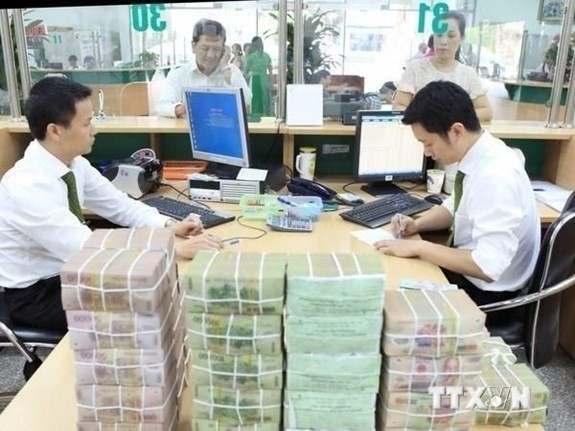Domestic revenue will continue to be the key pillar of the budget, maintaining a stable growth trend. Although falling crude oil prices may reduce income from oil and import–export activities, strong economic recovery and improving business performance are expected to help the overall revenue meet, and even surpass the target.

HÀ NỘI — Việt Nam’s total state budget revenue in 2025 is expected to exceed VNĐ2.38 quadrillion (US$90.34 billion), up nearly 17 per cent from 2024, according to Deputy Minister of Finance Nguyễn Đức Chi.
Domestic revenue will remain the key pillar of the budget, sustaining a stable growth trend. Although falling crude oil prices may reduce income from oil and import–export activities, strong economic recovery and improving business performance are expected to help the overall revenue meet, and even surpass the target.
Despite global economic uncertainties and challenges facing domestic production, the projected results reflect the Ministry of Finance’s flexible and proactive management. Along with fiscal policies supporting businesses and people, the Government is also accelerating the disbursement of public investment, keeping the national budget relatively balanced and helping maintain macroeconomic stability and growth momentum.
Meanwhile, total state spending in 2025 is projected at nearly VNĐ3.06 quadrillion, up around 19 per cent from the estimate for 2024. Development investment will remain the top priority, with more than VNĐ1 quadrillion expected to be allocated, an increase of about 30 per cent year-on-year.
Accelerating public investment disbursement, especially for strategic infrastructure, energy transition, and digital transformation projects, is considered a major growth engine. Meanwhile, regular spending will continue to be tightened and used more efficiently to create additional room for development investment and social welfare programmes.
The Government has set a clear goal for 2025: fiscal policy will be closely coordinated with monetary policy to control inflation, ensure financial security, and support economic recovery.
To assist businesses and citizens, the total value of tax, fee, and charge exemptions, reductions, and extensions is estimated at over VNĐ200 trillion. These measures have been implemented flexibly to ease liquidity pressures, particularly in the manufacturing, export, construction, transport, and technology sectors.
Despite strong spending commitments, the budget deficit is expected to remain under control at around 3.6 per cent of GDP, lower than the 3.8 per cent ceiling approved by the National Assembly.
Economic experts said that this year’s fiscal policy serves a dual purpose – acting as a “buffer” to protect businesses and a “spark” to ignite public investment. As disbursement accelerates, public investment is expected to create spillover effects across the private sector, boosting demand for materials, labour, and services, and in turn generating more sustainable state budget revenue in the years ahead. — VNA/VNS





